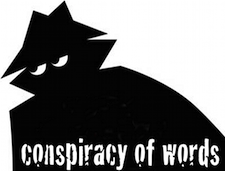Fatelessness by Imre Kertész
At the opening of Fatelessness, György Köves’ father, is taken away for “labour service”, one further step in a series of escalating laws and hostilities against Hungary’s Jews. 15 year old György is thereby made man of the house. Despite his own lack of connection to his Jewish heritage, György finds himself “a part of the shared Jewish fate.” His sense of distance from the racial and religious classification imposed upon him by the Nazis, along with his inability to speak Hebrew or Yiddish, generates provocative reflections on identity, ethnicity and religion throughout Fatelessness Early on, he debates with his neighbour, Annamarie, on whom he has a developing crush, the causes of their persecution, but is unable to share her understanding that they are being persecuted because they are Jews, despite wearing the same yellow star she does.
Soon, György himself is picked up by police, along with a group of his teenage companions on their way to work. The almost carnivalesque parade of teenage boys, and an increasing number of adults, children and the elderly, is merely the first part of a journey that leads him to Auschwitz, Büchenwald and other Nazi concentration camps.
Kertész writes masterfully jarring prose, placing the reader in an unsettling tangent to the narration. Our knowledge of historical context is played against in György’s matter-of-fact, almost offhand narration. He observes the everyday hatreds and humiliations of Jewish people with a kind of quiet appreciation for the intensity and idealism of the anti-Semitism. He observes the restrictions and laws against “those not of pure blood”, without critique or comment. He admires the neat, orderliness of German soldiers and camp structures, and even avows a certain pleasure in contemplating the well-braided lash wielded by an SS officer.
In this way, György is a powerfully naïve observer of events and experiences, rendering even his own mental and physical disintegration under the privations of hunger, disease and trauma a subject of distanced curiosity. “To be fair…” or “naturally…” he often says as he attempts to interpret or locate himself in the murderous logics his experiences – of mass deportation in railway freight cars, or the death camp at Auschwitz and the brutalities of Buchenwald. Atrocities are rendered everyday, the absurdities of social and economic organisation devoted entirely to extermination are made implacably real. An old woman’s death from thirst in the crush of the crowded railway car, the first such death which György observes, is “understandable” in the implacable mechanics of a body’s need for water.
In Auschwitz, inmates attempt to communicate – in German Yiddish, a language he barely understands – the terrible urgency of declaring himself to be older than he actually is, and capable of work. Almost casually taking their advice without understanding at all what is at stake, György is placed into a line whose inhabitants avoid, at least temporarily, Auschwitz’s showers and chimneys.
György observes his own further displacement and degradation with the same bemused detachment, even as the war escalates around him, and the liberation of the camps leaves him uprooted and alienated even upon his return home.
This is an uncompromising and stark novel. Shattering.




